Hampton & Richmond Borough Football Club SAFEGUARDING CHILDREN POLICY
1. HRBFC acknowledges its responsibility to safeguard the welfare of
every child and young person directly connected with the club and is
committed to providing a safe environment for all. We recognise that
those aged 16/17 years-of-age are legally defined as children and
therefore we have a responsibility to ensure appropriate safeguards
are in place.
As such we subscribe to The Football Association’s (The
FA) Safeguarding Children Policy and Procedures. HRBFC endorses
and adopts the following key safeguarding principles:
- The child’s welfare is, and must always be, the paramount
consideration; - All children and young people have a right to be protected from
abuse regardless of their; age, gender, gender reassignment,
sexual orientation, marital status or civil partnership, race,
nationality, ethnic origin, colour, religion or belief, ability or
disability, pregnancy and maternity; - All suspicions and allegations of abuse will be taken seriously
and responded to swiftly and appropriately; and - Working in partnership with other organisations, children and
young people and their parents/carers is essential. We
acknowledge that every child or young person who plays or
participates in football should be able to take part in an enjoyable
and safe environment and be protected from poor practice and
abuse. - HRBFC recognises that this is the responsibility of every adult
involved in our club.
2. HRBFC has a role to play in safeguarding the welfare of all children and
young people by protecting them from physical, sexual or emotional harm
and from neglect or bullying. It is noted and accepted that The FA’s
Safeguarding Children Regulations (see The FA Handbook TheFA.com/
footballrules-governance/lawsandrules/ fa-handbook) apply to everyone in
football whether in a paid or voluntary capacity, including coaches/
managers, volunteers, match officials, helpers on club tours, or medical
staff or other club officials/helpers.
3. We endorse and adopt The FA’s Safer Recruitment guidelines and we will:
Specify what the role is and what tasks it involves;
- Request identification documents;
- As a minimum meet and chat with the applicant(s) and where
possible interview people before appointing them; - Ask for and follow up with 2 references before appointing someone;
and - Where eligible require an FA accepted DBS enhanced with barred
list Check, in line with The FA’s current Safeguarding Children Policy
and Regulations.
All current HRBFC members working in eligible roles with children and
young people, such as coaches/managers and physiotherapists, are
required to hold an in-date FA accepted DBS enhanced with barred list
check as part of safer recruitment practice.
It is noted and accepted that The FA will consider the relevance and significance of
the information obtained via the DBS Process and that all suitability decisions will
be made in accordance with legislation and in the best interests of children and
young people.
If there are concerns regarding the appropriateness of a club official
who is already involved or who has approached us to become part of HRBFC,
guidance will be sought from the County FA.
It is accepted that The FA aims to prevent people with a history of relevant and
significant offending from having contact with children or young people and the
opportunity to influence policies or practice with children or young people.
This is to prevent direct sexual or physical harm to children and to minimise the risk
of ‘grooming’ within football.
4. HRBFC supports The FA’s Whistle Blowing policy (as described in this
paragraph), which requires any adult or young person with concerns about an adult
in a position of trust within football can ‘whistle blow’ by contacting The FA
Safeguarding Team on 0800 169 1863, by writing to The FA Case Manager at The
Football Association, Wembley Stadium, PO Box 1966, London SW1P 9EQ, by
emailing Safeguarding@TheFA. com or alternatively by going direct to the Police,
Children’s Social Care or the NSPCC. HRBYFC Football Club encourages
everyone to know about The FA’s Whistle Blowing Policy and to utilise it if
necessary.
5. We acknowledge and endorse The FA’s identification of bullying as a category of
abuse. Bullying of any kind is not acceptable at our club. If bullying does occur, all
players or parents/carers should be able to access our antibullying policy and know
that incidents will be dealt with appropriately. Incidents need to be reported in
accordance with paragraph 6 below. In cases of serious bullying the CFA
Designated Safeguarding Officer may be contacted.
6. In this Club, Safeguarding is everyone’s responsibility, and we
know that inaction is not an option and if anyone is worried about a
child it is important that they report their concerns to the Club
Welfare Officer (if there is one) or a member of the Club committee,
who will deal with reported concerns as follows: i. The Club Welfare
Officer (if there is one) (“CWO”) or a member of the Club committee
will manage poor practice and where necessary seek advice from
the CFA Designated Safeguarding Officer (CFA DSO). ii. The CWO
or a member of the Club committee will make referrals about more
serious concerns to the CFA DSO, or in an emergency contact the
Police or Children’s Social Care. iii. We will ensure that if the child
needs immediate medical treatment that we take them to a hospital
or call an ambulance and tell them it is a child protection concern.
- The CWO or a member of the Club committee will keep records of
the actions taken and keep the CFA Designated Safeguarding
Officer informed. v. If the CWO or a member of the Club committee
is not available at any time, or the matter is clearly serious, all our
members should be aware that they can: - Contact the CFA DSO directly;
- Contact The FA’s Safeguarding Team on 0800 169 1863 or
Safeguarding@TheFA.com; - Contact the Police or Children’s Social Care; and/or
- Call the NSPCC 24-hour Helpline for advice on 0808 800 5000 or
text 88858 or email help@nspcc.org.uk
